What does “cultivating our minds” mean?
On our journey of spiritual cultivation, cultivation of the mind is a topic we will inevitably face at one point or another. Beginners, or those yet to experience any spiritual response from their practice, may start by focusing on eliminating karmic obstacles and performing meritorious deeds. That is because when heavy karmic obstacles and karmic debts are still weighing down on your body, and uncleansed defilements on your mind remain, cultivating the mind is out of the question at this juncture. Once our karmic obstacles are reduced to a certain level, the time will naturally come for us to gradually cultivate the mind. This is the feature of Buddhist practice that the Master imparts to you, focusing on attaining enlightenment in the present life – as opposed to other practices that focus on attaining enlightenment in the next life. Evil stems from the heart. In fact, our inner demons and our karmic obstacles are inextricably linked. Once we have the opportunity to repay our karmic debts before cultivating our minds, we are then all geared up for an easy road to spiritual practice. So when it comes to cultivating the mind, Guan Yin Citta Dharma Door is more effective at clearing the hindrances of our minds, giving us the upper-hand in subduing our inner demons, elevating our level of spirituality and achieving the desired results.
修心修什么?
修心是修行到一定阶段后必然要面对的一个题目,初学者或还没有感应的人,可以先专心致志地消业障做功德做起,这是因为当身上的孽障还很多的时候,你的债还太多,心上的污垢还没有擦拭,谈不上修心。而当我们消孽障到一定程度的时候,往往这时候会有经历过梦考,如闻到了天檀香,见到菩萨笑等灵感后,逐渐地修心就摆在面前了。这就是师父所传的“修今世法”区别于其它“修来生法”的一个特征。魔由心生,实际上心魔和孽障是密不可分的。现在我们能够还债后再修心,那么我们就可以轻装上阵。所以同样是修心,心灵法门明显可以让大家的心障减轻,容易克服心魔,提升境界,收到成效。
From these three aspects of cultivation, it becomes clear that changing our behaviour and cultivating our minds are closely linked. To correct ourselves, we must first identify what kinds of deviated behaviour we have committed. This process of “awakening” is the process of cultivating the mind. By constantly reflecting on our conduct and our minds, we will be able to progressively make improvements. There is no definite rule about how to cultivate the mind, nor is it possible to outline a standard procedure. The reason for that is because the karmic force affecting each individual varies, as the obstacles they face and the paths of cultivation they choose can be strikingly different. Nevertheless, as the saying goes: “Innumerable dharmas return to one.” No matter how drastically different our paths of cultivation may be, there is only one final aim – to attain the state of mind of the Buddha and the Bodhisattva. The Buddha’s mind is the mind of all sentient beings, while the Bodhisattva’s is one that possess compassion. Hence, we need to reflect on our minds, comparing them to those of the Buddha and the Bodhisattva. Only then will we be able to discover what we should correct within our minds, and how we should go about changing our behaviour.
从修行的三个方面还可以看出,修行和修心是息息相关的,要修正自己,首先就得发觉自己的行为上有什么不正的地方。这个“觉”的过程就是修心的过程,反省自身,反省自心,逐步提高。修心没有一定的明确规定,按部就班的操作规程,具体说明如何修心,因为各人的业力不同,修行所遇到的障碍不同,从而修心之路也就有千差万别。但万法归一,无论我们修心之路有多么大的差别,最终的目的只有一个,就是佛心菩萨心,佛心即是众生心,菩萨心即是慈悲心,所以只有时时反省自心,对照佛心菩萨心,就能找到心中要修正的地方,从而修正我们的行为。
Buddha’s mind is selflessly focused upon the suffering of sentient beings, while the Bodhisattva’s mind revolves around the Four Limitless Qualities of loving kindness, compassion, empathetic joy and equanimity. Each of these are very high levels of spirituality, and therefore serve as the benchmark and ultimate goal of our journey of cultivation and self-correction. The starting point for cultivating the mind lies in the correction of our minds, and reaching a level where the mind is pure and settled. What this means is that we must be practical in identifying our flaws, eliminating the “three poisons” of greed, hatred and delusion, and eradicating attachment to the self and attachment to others. Only once our minds are settled and wholeheartedly dedicated to cultivation can we achieve spiritual purity by gradually understanding our minds and seeing our true nature. We will then be able to see our innate Buddha-nature, including our conscience and our kindness, which will in turn thrive and develop into compassion.
佛心就是无我地想着众生的苦,菩萨心就是慈悲喜舍,这都是极高的境界。所以是我们的榜样和修行的终极目标。修心的基本起点就是修正心灵,达到心净心定的境界,也就是着眼于实际,从我们身上的毛病找起,去除三毒“贪瞋痴”,去掉我执他执,从而定下心来,一心修行,得到心灵的纯净,逐渐地明心见性。见到我们本来的佛性——包括良心、善心,使之培养壮大,发展成慈悲心。
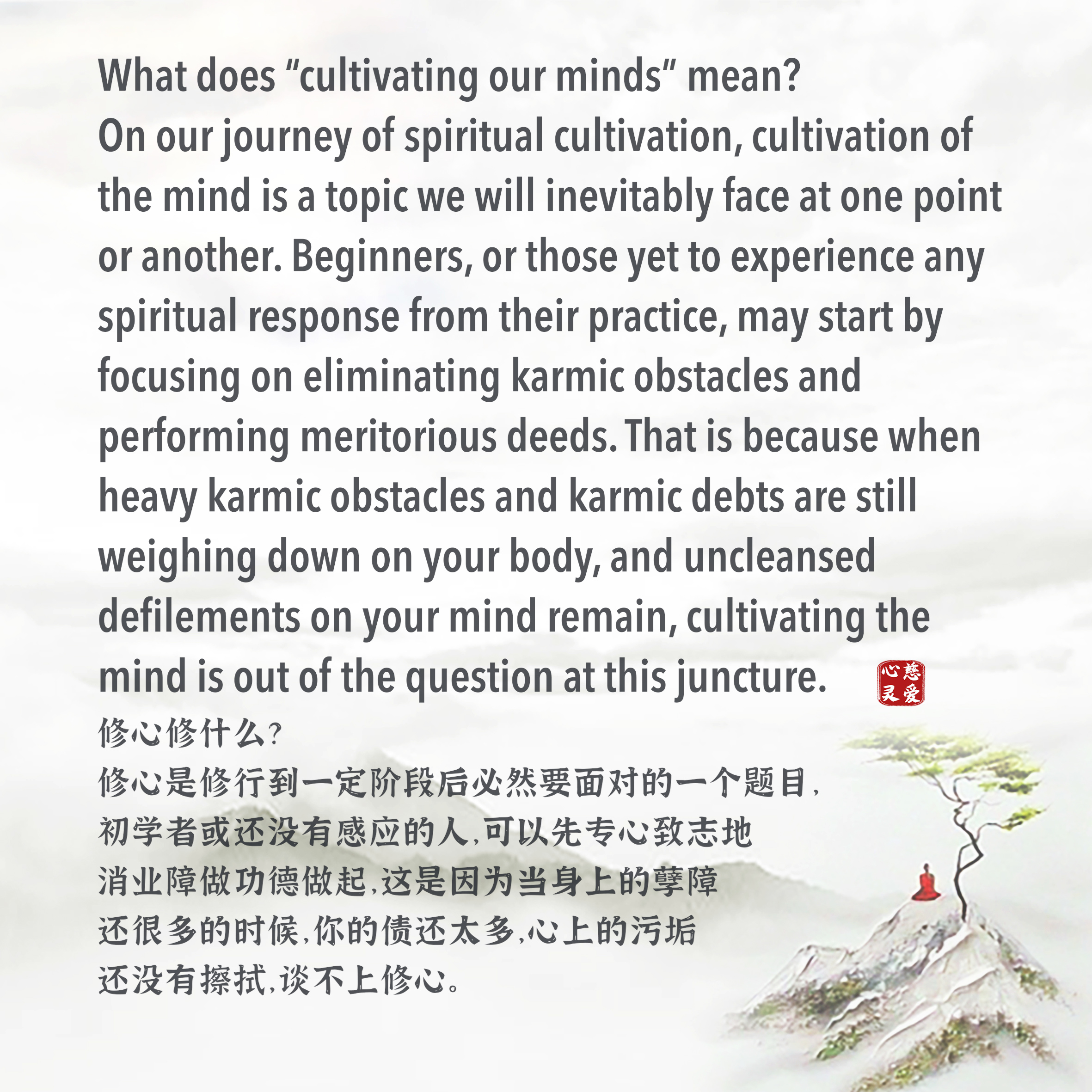
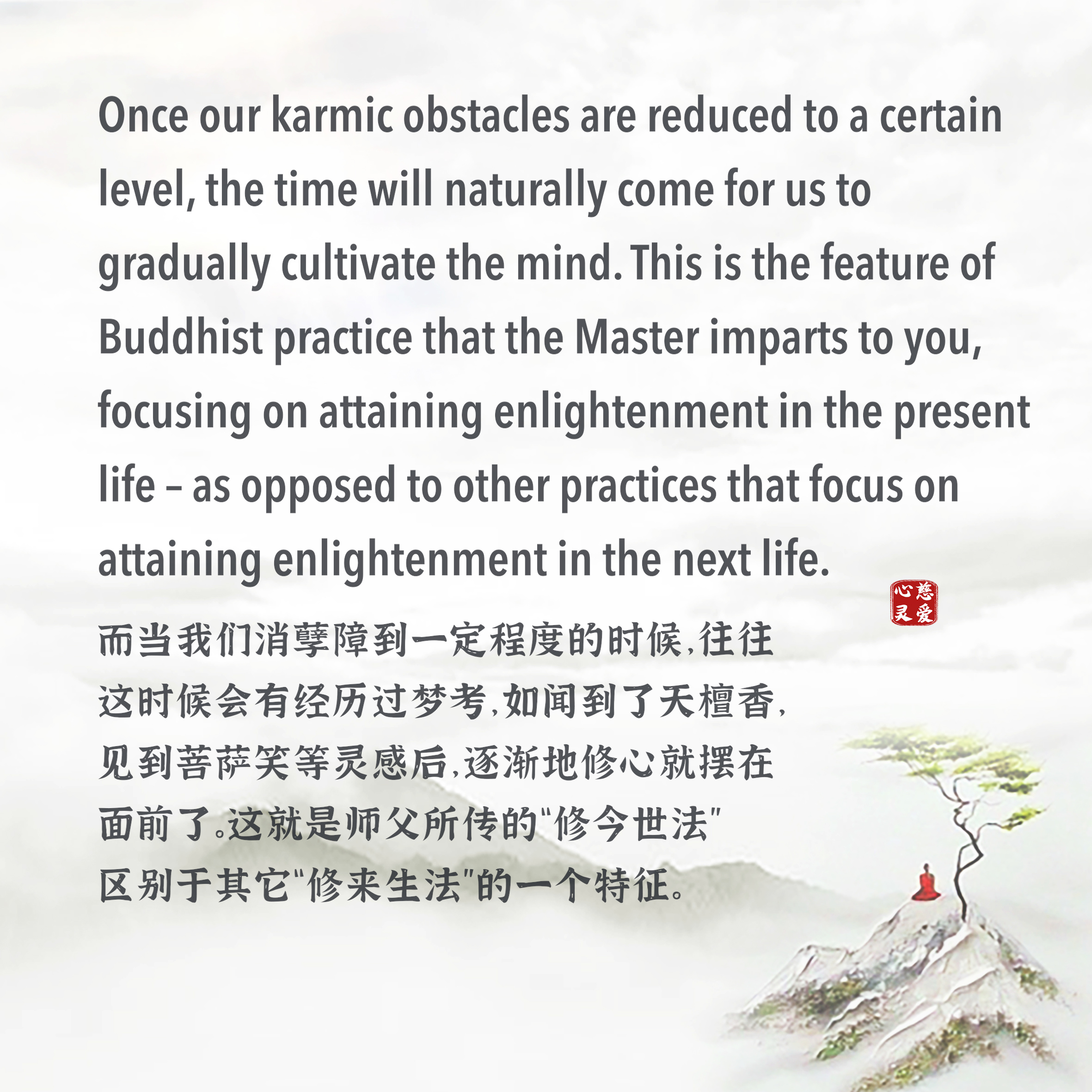
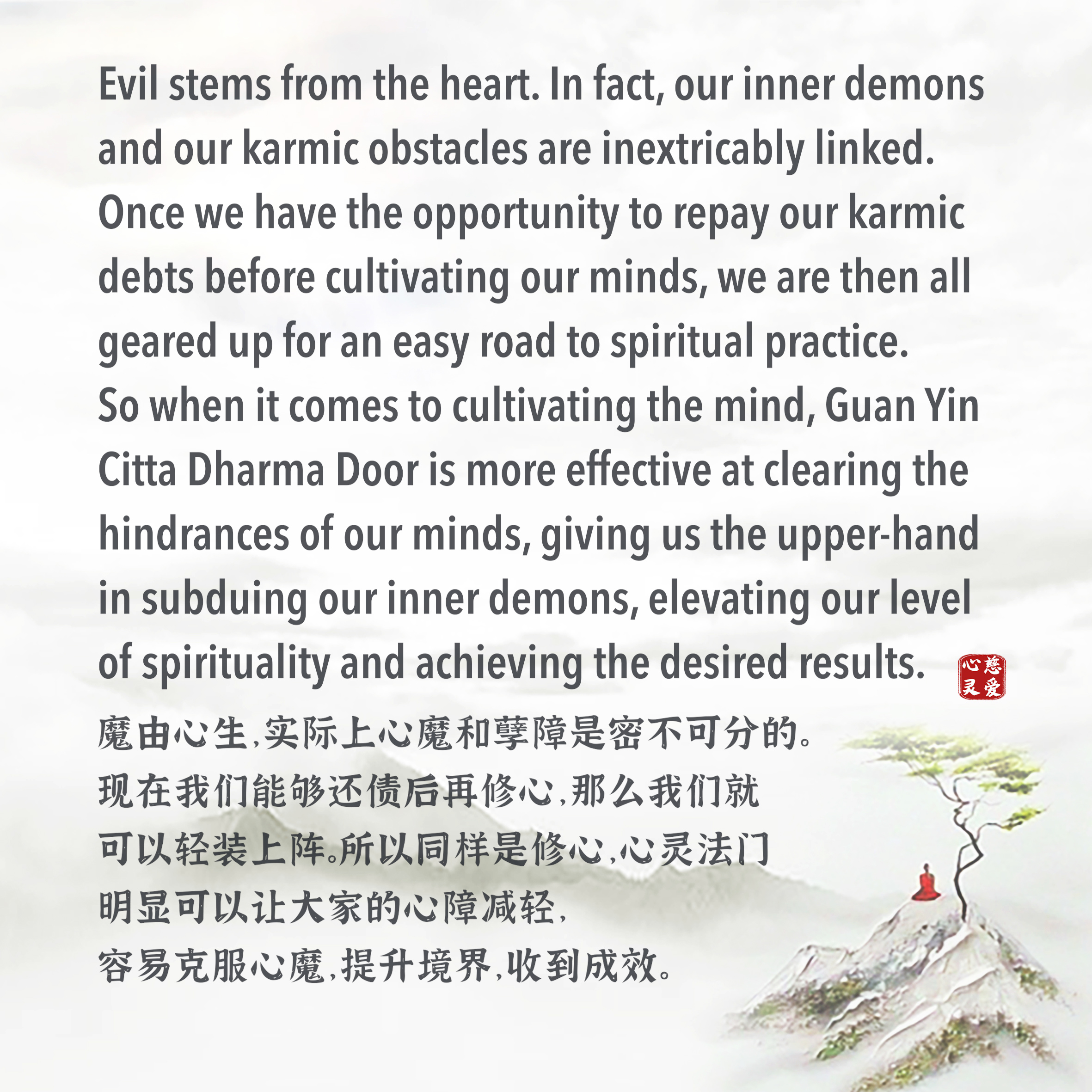
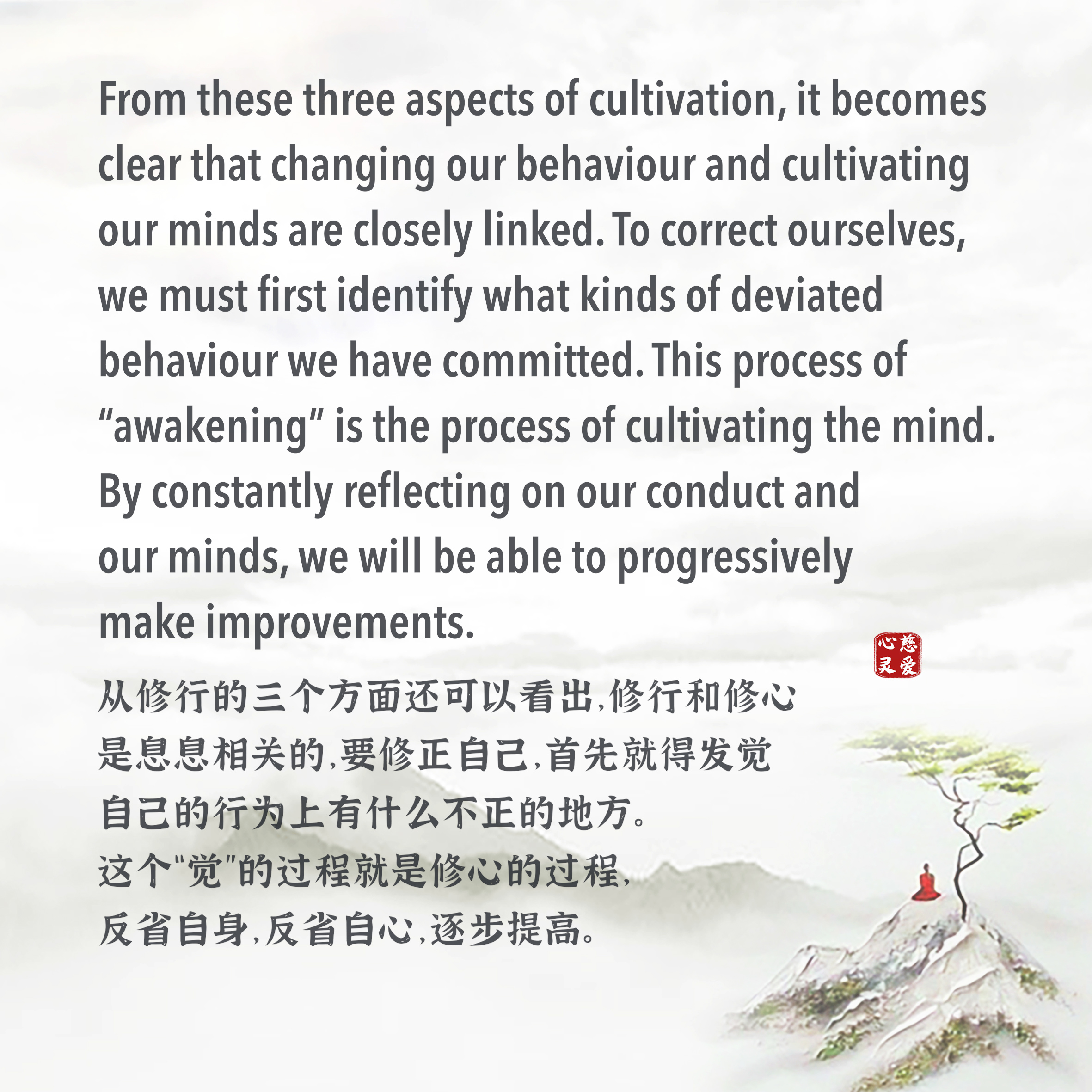
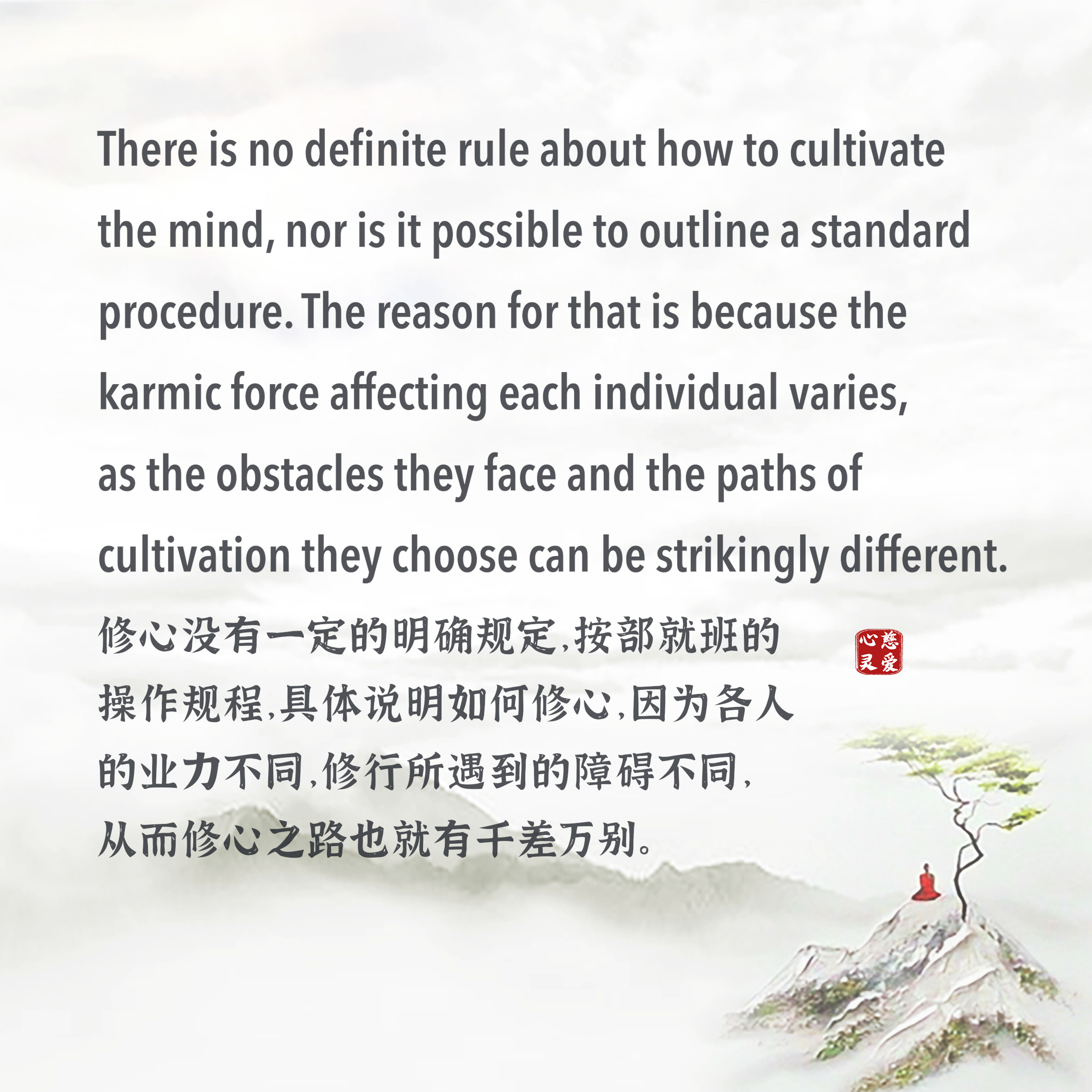
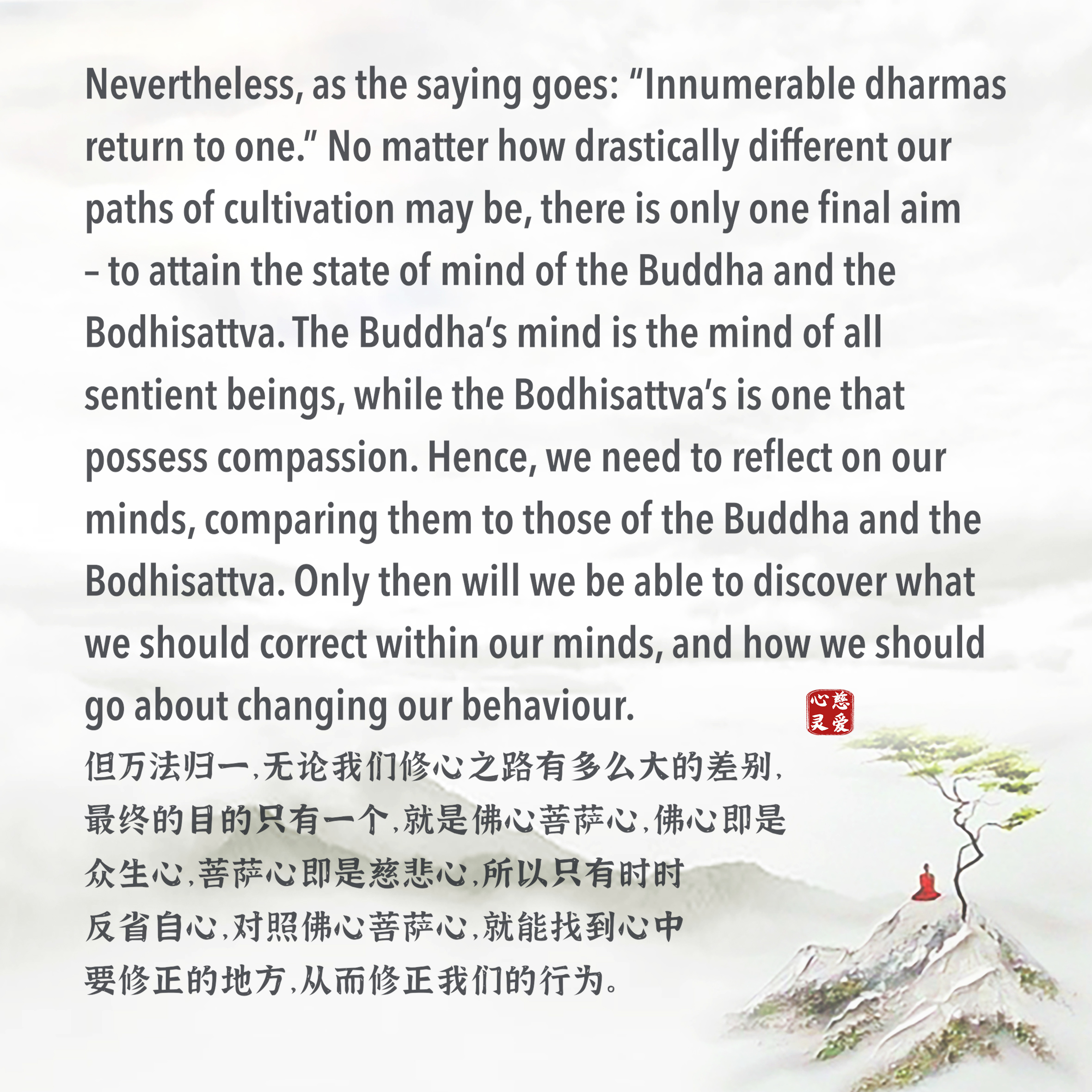
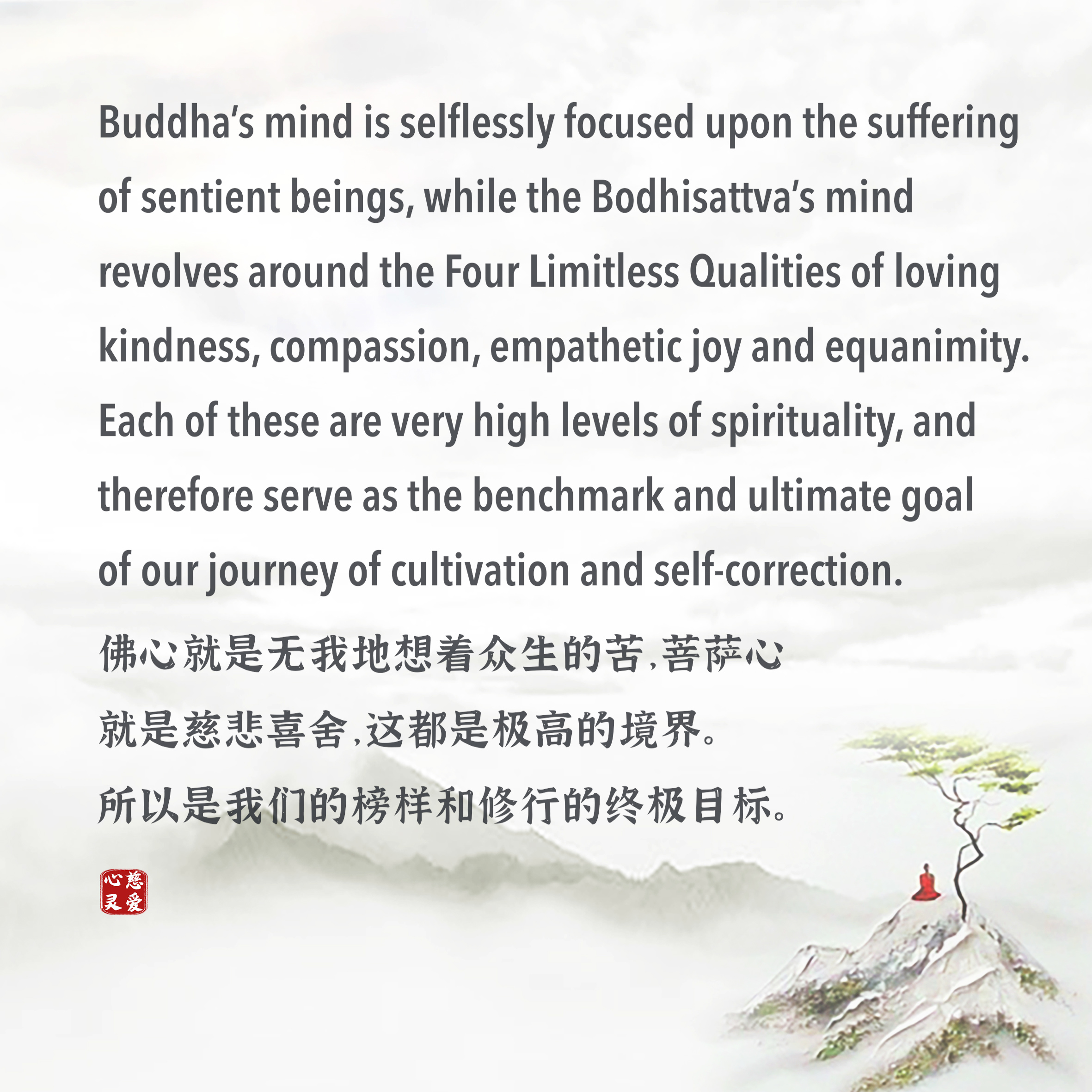
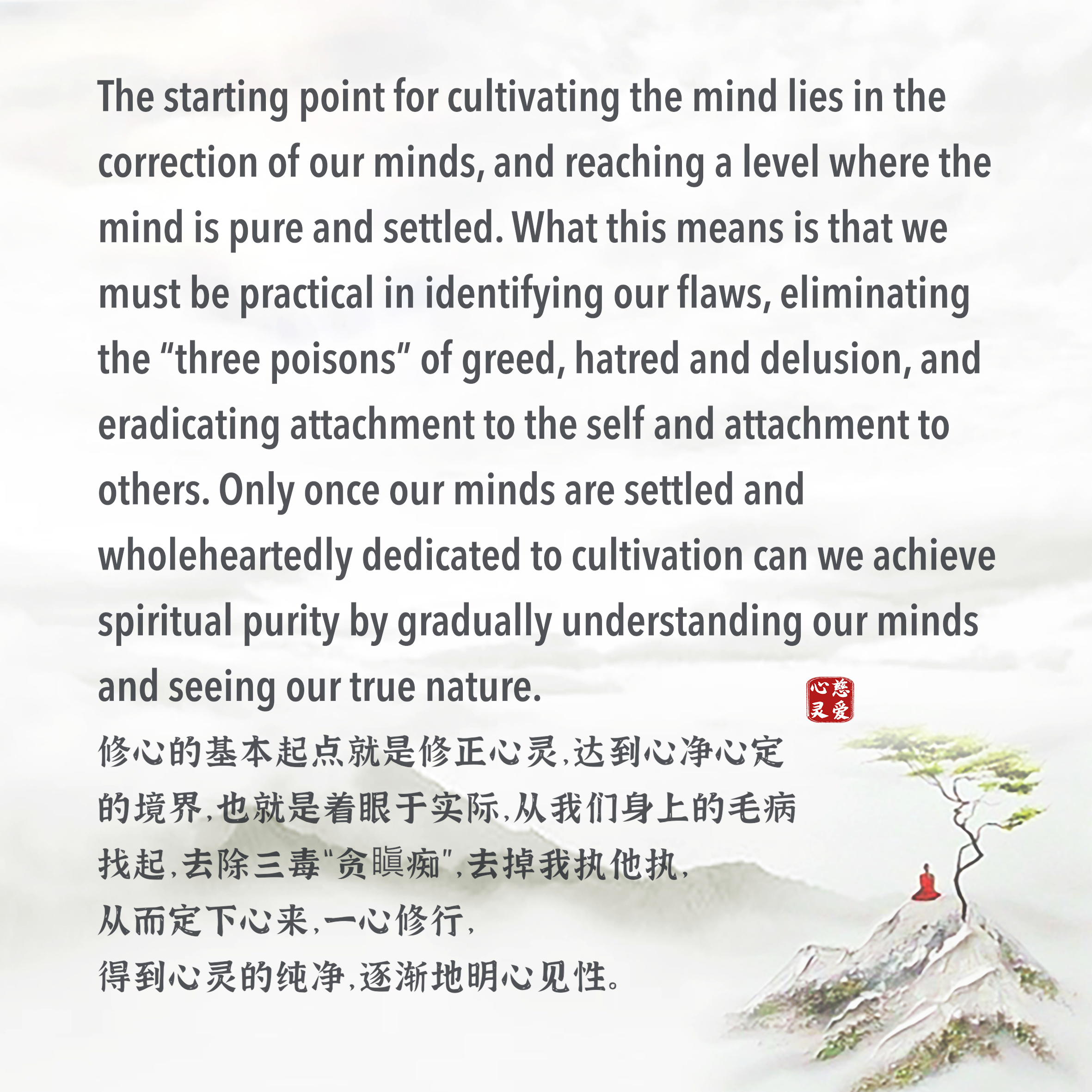

《资料大全》

点下图安装【慈爱心灵】APP

《初学答疑群》扫码进入
《Whatsapp学习群》<<<点击进入如微信点开,选择右上角“浏览其中打开”

--- 以上内容排版、视听资料处理等如有不如理不如法的地方,请南无大慈大悲观世音菩萨和护法菩萨原谅!请各位师兄原谅!